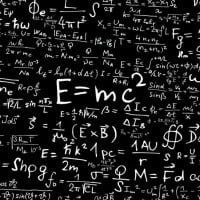Top Ten Academic Subjects Physicists Enjoy Mocking Most
I'm a physics student myself, and one who's very passionate about the study of how the universe works, but I am one of many who likes to joke about the studies in the world around me. Not many do it quite to the extent of Sheldon Cooper, and I am proud to be part of the majority in that sense, but we like to have our laughs about it, and all for very different reasons. And if you're here to defend your subject after what I say about them on this potentially controversial list, I won't hold it against you. It's all in jest!
Chemists: easy targets, have a lot to argue in favour of their subject, but from the perspective of the scientists whose academic focus shares their roots, as well as the rest of the quantum mechanics and atomic physics of which modern chemistry is a tiny aspect, they argue too much. It is in the nature of chemists to extensively rant and rave about how their subject is superior to everything, and like fluorine, they're extremely volatile and potentially dangerous when this is challenged, or even upon the slightest implication that someone disagrees. So as far as I'm concerned, the taunting that chemists get was brought upon themselves.
Spanning from the explanation above, physicists like to continuously remind chemists that they went through all the trouble developing chemistry, which now stands as a separate and inferior science altogether. And the fact is, they know their science is built around physics, so the only counter-argument they can make is "you're wrong, it's the best! " Only dragged out in a wild rant.
There's also the way we mock their love for naming things. One thing I detested about chemistry class was the pointless need to recall the long and unnecessarily descriptive names of organic molecules, from 1,3-dimethylbutan-2-one to 2,5,6-trichloroctanal. And I simply can't forget the most tedious extracurricular lecture imaginable, in which the gaggle of weirdos were spellbound by seeing rotational symmetry in these carbon chains, like kindergarteners. If you think I'm exaggerating, you have no idea. Like a great physicist once said, this is stamp collecting. They look at the molecules, count their carbon atoms, quickly describe and dismiss their electronic spin configurations, however it is the physics which fundamentally dictates how these molecules behave. And this is a strong argument that many physics enthusiasts such as myself make to justify the significance of physics, and it is what they use to provoke the other sciences,... more

For some part, we like to make fun of ourselves. We propose absurd joke theories and joke about how "dumb" our actual theories are, "explain" them as if to non-experts, including some truly appalling puns. Mocking each other by the tendency for them to bring down entire projects is also in the equation.
In other respects, we laugh off some really far-fetched proposals made by physicists of a different but similar background, and laugh at ourselves when they're proved right, or if we think of our own flaws once the dye is cast when we mock the right camp.
In short, if men and women of physics mock any of the sciences, it's their own area of expertise. And that's because we know the most that there is to know about it, and we don't discriminate. Sure, we tease engineers and geologists, but we don't bully them. If anything, we just have a dignified and enormous sense of humour.

The mainstream media has created a mad scientist trend that fits scientists in general. Some of us are proud to have this burden on our backs, but some of us are sick to the soul of it. And those in physics of the latter ideology take it out on computer scientists and engineers. The properties of an awkward nerd are made extremist in their case as well. We're glad for the most part to have the same burden upon us, but we're not radicalist about it, nor do we exhibit that. Those who have degrees in computing do. We also make fun of them because their bosses and the government think they spend eighteen hours a day tapping on keyboards or into a hottie's Twitter account, play video games and rant about Batman in their fifties, and speak Python more fluently than English, where in reality, it's working, but they have no clue as to why, and they make most things work by turning them off and on again.

Engineering is an applied form of physics, which some might say is making knick-knacks spanning from long understood scientific ideas, and one reason we joke about it is because of the key differences.
There's a lot of exploitation over how the engineers are more heavily concerned with the everyday uses of the prospects of physics and their sustainability, which devolves from their pioneering scientific focus. But as this is what they actively say is not only important, but also enjoyable, a humourous physicist would call them boring and prosaic to some extent. In the words on a shirt I've seen in such company, engineers are not boring people, they just get excited over boring things!
Second, there's the stereotype that engineers are meant to work for physicists. In some cases, it's the other way around, but while engineering is essentially building stuff, as my friend in aeronautics has put it when trying to convert me to his subject, there's the cold hard truth that the underlying dynamics have to be understood and widely accepted by higher research, I.E. physics research, before it can be deemed appropriate for invention designs. With that in the equation, the engineering is the designing process, and those who organise it have to take the bull by the horns and comprehend a whole different scope of dynamics; they are just as contemporary and intelligent as the community behind developing the underlying theory.
Third, engineering involves construction of cars, houses, nuclear reactors, etc. , and again, they get mocked for getting excited over the arbitrary and pedestrian details. But the emphasis here is on the commonplace careers that derive from their skills, splitting from the areas of research. I personally call this third point a cliche, since engineering firms are often situated at universities, which goes into research in itself, but there are still those Bob-the-Builder types with boring jobs that we jape about, and the reason that... more

Science and philosophy are, of course, very closely linked, but in their big questions, the former asks how, the latter asks why. It means that there are some ideas of one which can agree with the other, and other which cannot. And we all know the big science versus religion debates, but it goes further than that, such as questioning whether mathematics, the language of physics, even exists. And it is a never-ending inequality of ideas, as anyone who's been in a religion fight (basically anyone) will know, which allows each side to put a lot of energy into their insults, and talking in a way to make everyday things such as buying groceries sound as profound as humanly achievable.

Physics underpins astrophysics, the study of stellar objects, and cosmology, the study of the origins and evolution of the universe, and it loosely links to the documentation of where everything is in the sky, which we call astronomy. It is assisted by applications of physics, and vice versa, but of course, there are the astronomers with the responsibility of looking up at the asteroids in close proximity and seeing the same thing every day, or the fascination by the idea of rocks in space. But of course, astrophysics and cosmology would fail without the radio telescopes that detected the cosmic microwave background that astronomy provided, so the mocking of astronomy is highly controversial among humourous physicists. It can break the ice, but also some relationships.

Just as chemistry is applied physics, the life sciences are applied physics AND chemistry! And it's also by far the least mathematical of the sciences, unless you count biophysics. And of course, areas such as medicine would struggle without an understanding of radioactivity and fluid mechanics. It was in fact some of the most important theories of fluid dynamics that explained some properties of blood flow that had had anatomists and physicians puzzled, and anyone who's worked professionally on understanding the functions of the circulatory system knows this. Thus, biology is mocked for being an even more obscure physics application than chemistry. It's only that this mocking happens less frequently, partly since physics and biology are working together to scientifically define life and conscience, but mostly because biologists are not as sensitive and defensive as chemists. In fact, many of them develop a dark personality from having a mindset revolving around bacterial disease, predatory instincts and genetic disorders, and, of course, the most important theories of biology such as Darwin's evolution theory are the most questioned in the name of religion, which sets us all on edge.
Mathematics is the language of physics, and physicists salivate at the predictions and analysis that it offers, but mathematics is never a perfect tool for describing the universe. There are many deceptive tricks that mathematics plays, which some scientists develop into theories which are built only on mathematics. An example is string theory, which is a popular subject on the frontier of modern knowledge and has the potential for explaining unanswered questions in physics, such as the trouble with loop quantum gravity, however thus far, no experimental evidence for it has been disclosed. Thus there is much tumult in the community of physics about whether ideas such as string theory are real. But as often happens in science, the most wild and widely controversial statements often have a significant outcome on how science is developed, whether right or wrong. That doesn't mean that mathematicians aren't accused of making up science. But as the camps of mathematics and physics are very alike in their nature, as are the subjects themselves, there is a lot of mocking both ways, and a lot of hypocrisy in our delirium.
Our mirthful attitude towards materials is similar to that of engineering, only with the knowledge that it is the most boring way to use physics. The second paragraph in my engineering comment is thus mostly true here.
Geography is divided into humanitarian and physical geography, the latter essentially being the tracking of the effects of geophysics. Admittedly, they do have an avid interest in such, but they also have an avid interest in rocks. And the humanitarian side? Well, the reasoning behind mocking it for that is self-explanatory.

I just added this because I know someone who picked history over physics as an academic subject, who I should really leave alone.
Because females are treated like second class citizens.